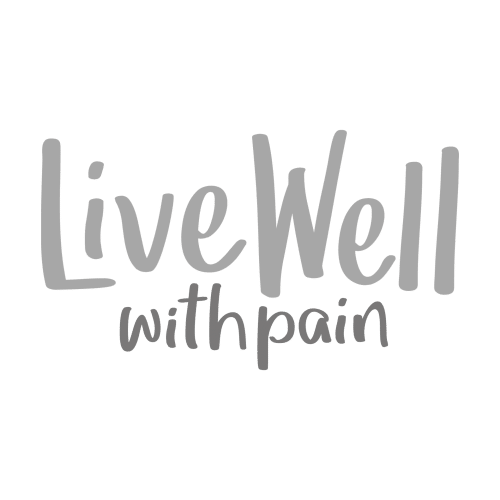In our guest blog, Holly who lives with hypermobility, tells us how gardening can help people living with persistent pain
Pain that continues for over three months is defined as chronic or persistent pain. Estimates vary, but it’s thought that anywhere between one in four (1) to over a third of people in the UK (2) live with some form of chronic pain.
People living with chronic pain experience unique challenges daily, but gardening offers a number of physical, psychological and social benefits that can help ease some of those burdens.
Improved Mental Health
Living with chronic pain can severely affect a person’s quality of life and ability to carry out everyday activities. This can significantly impact a person’s well-being, leaving them feeling anxious, stressed or depressed. Alongside this, if someone with chronic pain is unable to work due to their condition or struggles with daily tasks, many may find themselves confined to the home for extended periods. Looking at the same walls all day can be uninspiring and sometimes lead to uncomfortable feelings of isolation and depression. However, getting outside in the garden for a change of scenery and surrounding yourself with nature comes with several advantages.
Reduces Stress
According to research, the average person in Britain spends 90% of their time indoors (3), which is a huge proportion of their daily life. Going outside can improve your mood and reduce stress levels, so it’s important to spend even just a bit of time outside whenever you can. According to a 2021 report, 70% of adults in the UK agree that being close to nature improves their mood, and 49% reported that it helps them cope with stress (4). Gardening gives people a purpose to step outside and enjoy nature for a few hours.
Sometimes, when you have chronic pain, the thought of planning a full day out can feel anxiety inducing; you don’t know how you’re going to be feeling on the day. Having your own garden offers a sense of control, allowing you to step outside when you’re feeling well. You are able to tailor the space to your needs, including opting for a lower maintenance design. If you’re not able to spend much time in the garden, consider choosing hardy, low care plants like hydrangeas, Japanese azaleas, and dog hobble. These varieties require less frequent watering and don’t need much in the way of special care.
Mental Stimulation
By going outside, you’re surrounded by different colours, smells, sounds and textures. This, alongside learning new gardening skills and problem-solving, can help signal safety to the nervous system, thereby turning down your pain response. When something goes well, such as creating a beautiful flower garden or growing your favourite vegetable, this can lead to a satisfying sense of accomplishment. For many, gardening becomes more than just a pastime. It offers structure to your week, motivation and gives you something positive to look forward to.
Social Interaction
Social interaction is something we all need to varying degrees: we’re social beings! Friendships can reduce stress, improve mental health, boost your immune system, and provide a sense of purpose (5). By having connections, you can eliminate feelings of isolation and feel a part of something special. Whether you’re teaching someone a new gardening skill or catching up with a friend about what you did at the weekend, gardening with others can be exciting and help with life’s stresses. There are also many gardening groups out there specifically for people with chronic pain, which offer a safe space to meet others with similar experiences.
“I joined a gardening group and met a lovely lady who had back problems similar to mine. Meeting someone going through the same thing as me helped me feel less alone, and I really enjoy seeing her each week when the group meets.” – Jack, 64.
Allows For Gentle Exercise
As well as mental health, gardening can also improve your physical health. Through actions like bending, reaching, walking, and lifting in the garden, you can build your muscles to increase your functional strength and flexibility. Getting active for even just a few hours for a couple of days a week can improve suppleness, endurance and strength (6). In fact, 81% of British adults agree that green spaces and gardens benefit their physical health (7).
Exercising can also improve mental health, with the same research finding that 85% of adults agree green spaces benefit their state of mind. Physical activity triggers the release of endorphins, which can improve your mood and also serve as a natural pain reliever!
You Can Do What’s Best For You
Exercise doesn’t have to look like running a marathon and lifting heavy weights. Gardening is a low-intensity activity that you can personalise to work for you. If something feels uncomfortable, you can adapt it. It’s important to listen to your body. There are lots of tools out there which are designed to help people with health conditions. A gardening kneeler (8) can make tasks more comfortable, and easy-grip tools can be helpful for those with arthritis or hand pain.
“I can’t always walk far or move around as much as other people do, but gardening has kept me active. My daughter reminds me that the simplest movements like watering the flowers can make a difference.” – Dorothy, 71
Final Thoughts
If you’ve never tried gardening before, now is the time to start! Whether you’re planting flowers or growing carrots, there’s something for everyone to enjoy in the world of gardening. For those with chronic pain, gardening comes with a whole host of benefits that can improve both physical and mental health.
References
1) https://www.bbc.co.uk/news/health-61309962
2) https://cks.nice.org.uk/topics/chronic-pain/background-information/prevalence/
3) https://www.opinium.com/brits-spend-90-of-their-time-indoors/
5) https://www.brownandtoland.com/blog/5-reasons-why-friendship-is-great-for-your-health/
6) https://www.thegoodcaregroup.com/news/how-gardening-can-improve-elderly-health/
8) https://www.gardenersworld.com/product-guides/accessories/best-garden-kneelers/



























